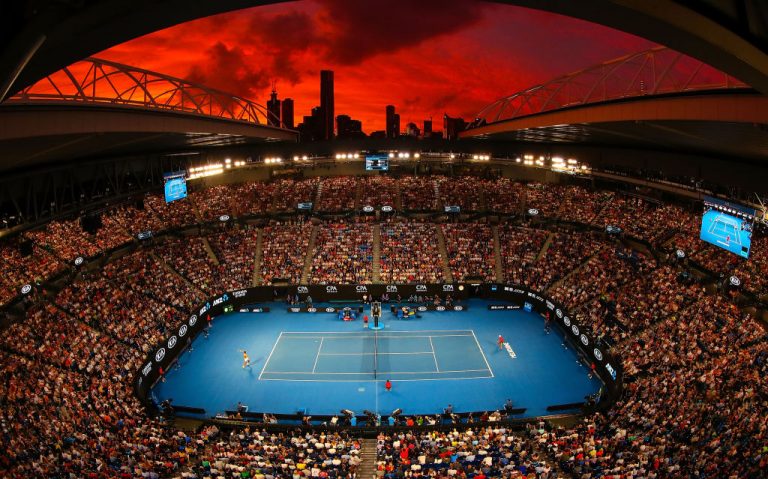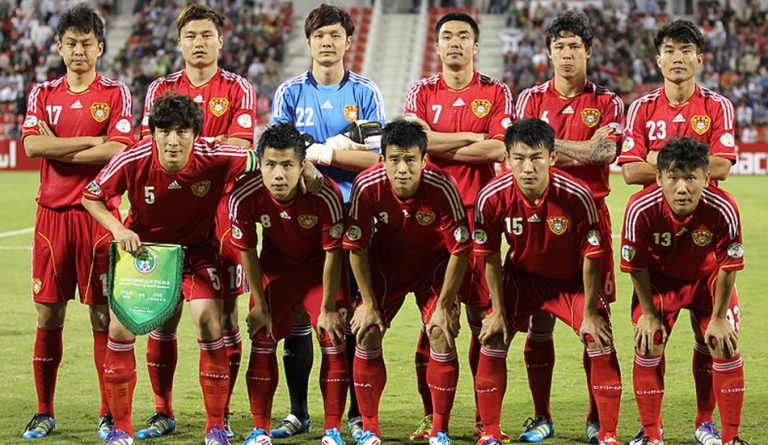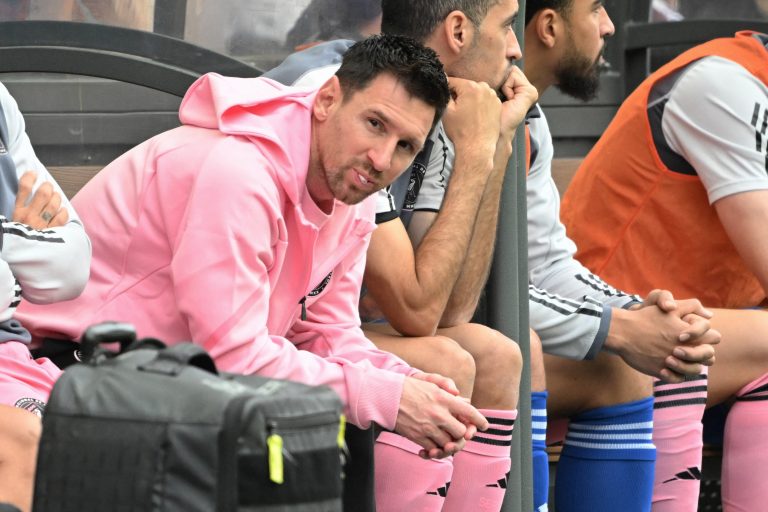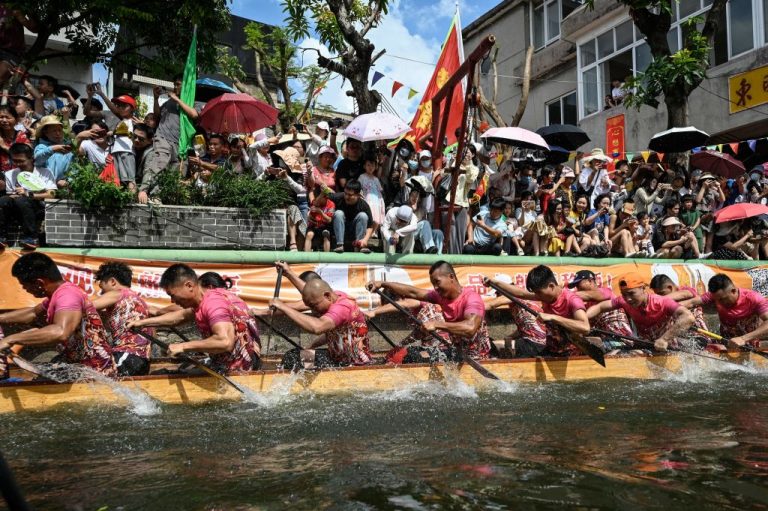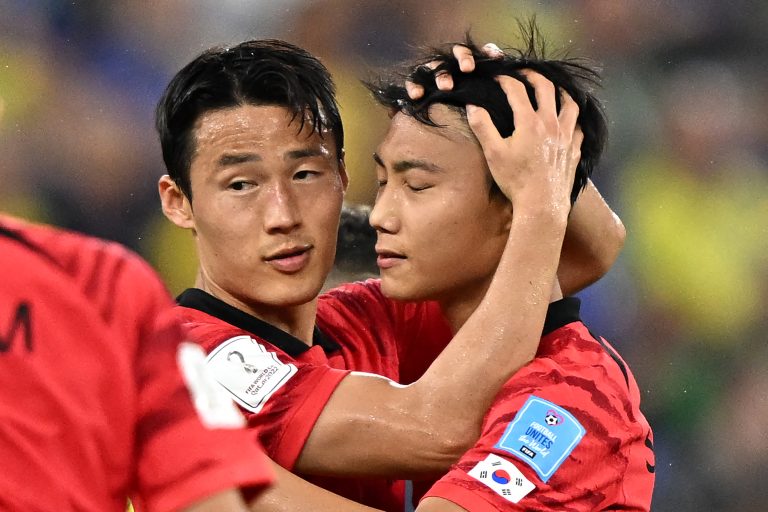Organizers of the Australian Open have reversed a ban on T-shirts that show support for Chinese tennis player Peng Shuai after a global outcry.
On Jan. 21, the tennis event came under fire after security staff were seen asking spectators to remove T-shirts and a banner with the words: “Where is Peng Shuai?” written on them.
The decision to ban the shirts was met with fierce criticism from activists in the international tennis community, with some suggesting that Australian organizers were bowing to pressure from Chinese sponsors and failing to uphold a moral duty.
Australia’s defense minister Peter Dutton also spoke out against the ban, calling the Australian Open’s actions “deeply concerning” in an interview with BBC. “I think we should be speaking up about these issues, and I’d encourage… tennis organizations, including Tennis Australia [to do so],” Dutton said.
READ MORE:
Friday’s incident also sparked the creation of a Gofundme page that vowed to print out more T-shirts in support of Peng after reaching its goal of AUD$10,000 (USD $7,179).
Peng, 35, first came forward on Nov. 2, 2021 alleging that she had suffered sexual abuse at the hands of former Vice Premier Zhang Gaoli, who served on the Chinese Communist Party’s seven-man Politburo Standing Committee. The PbSC is the Party’s most powerful leading body.
Success
You are now signed up for our newsletter
Success
Check your email to complete sign up
Peng described on her verified Weibo account (China’s version of Twitter), that she had agreed to a consensual affair with the former top official around a decade ago. However, three years ago, when Zhang was retired, he allegedly invited her to his home and pressured her into having sex.
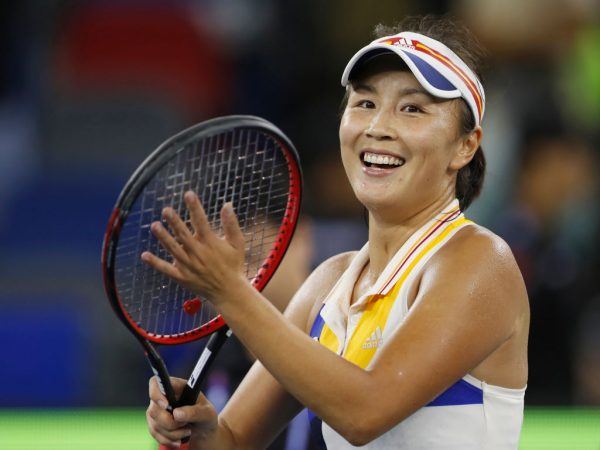
The post was quickly removed around 10 minutes after being posted and Peng’s account was disabled. Even the word “tennis” was blocked across social media platforms, showing the meticulous level of control the Chinese regime applies to its tightly censored internet.
READ MORE:
- ATP Faces Criticism For Not Acting Against Communist China Regarding Peng Shuai Issue
- International Pressure Over Peng Shuai’s Disappearance Creates a Political Dilemma for Xi
Craig Tiley, chief executive of Tennis Australia – the organizing body behind the Australian Open – told reporters they would now allow spectators to wear the T-shirt as long as they attended without the “intent to disrupt” and were “peaceful” in their demonstrations.
“If someone wants to wear a T-shirt and make a statement about Peng Shuai, that’s fine,” he was quoted as telling reporters from The Sydney Morning Herald.
Tiley added that banners would remain prohibited at any of the sporting events as “they really take away from the comfort and safety of the fans,” adding that security staff would make decisions on a case-by-case basis.
Coercion at play?
After not being heard from for over two weeks after going public with her allegations against Zhang, an email allegedly written by Peng was released on Nov. 18 by state-run media China Global Television Network. The email claimed that she was fine and was just resting at home.
Doubts were immediately cast over the authenticity of the email and concerns raised over Peng’s actual safety and wellbeing. The Women Tennis Association’s (WTA) Chairman and CEO Steve Simon urged the Chinese regime to thoroughly investigate Peng’s claims and voiced concern over whether she was being coerced into retracting her previous statements.
Upon release of Peng’s “email,” Simon said “the statement released by Chinese state media concerning Peng Shuai only raises my concerns as to her safety and whereabouts,” adding that “The WTA has been clear on what is needed here, and we repeat our call for a full and transparent investigation – without censorship – into Peng Shuai’s sexual assault accusation.”
Peng then made her first public appearance on Sunday, Dec. 19, during an interview aired by Singaporean media outlet, Lianhe Zaobao, at the sidelines of a cross-country skiing event in Shanghai.
“First, I need to stress one point that is extremely important, I have never said or written that anyone has sexually assaulted me, I have to clearly stress this point,” Peng said in the video, adding that her post was a “private matter” about which “people have many misunderstandings.”
WTA pulls out of China over treatment of Peng Shuai
Observers have raised doubts as to whether Peng made these statements out of her free will.
After Peng’s recanting of her allegations against Zhang, the WTA decided to end all tournaments in China. Simon said in a statement released on Dec. 1 that with the “full support of the WTA Board of Directors,” all WTA tournaments in China, including Hong Kong, will be suspended immediately.
The statement stated that he “could not allow in good conscience for other athletes to compete [in China] when Peng Shuai is not allowed to communicate freely and has seemingly been pressured to contradict her allegation of sexual assault.”
Many of Peng’s colleagues in the tennis world also have publicly shared their concerns for the star’s safety and praised the WTA’s decision to cancel all tournaments in China until there is concrete proof that Peng is safe and well.
18-time Grand Slam winner Chris Evert, a long-time friend of Peng’s, said that she was proud of the WTA’s decision and that all focus should now be on making sure Peng is safe and able to speak freely without coercion.



